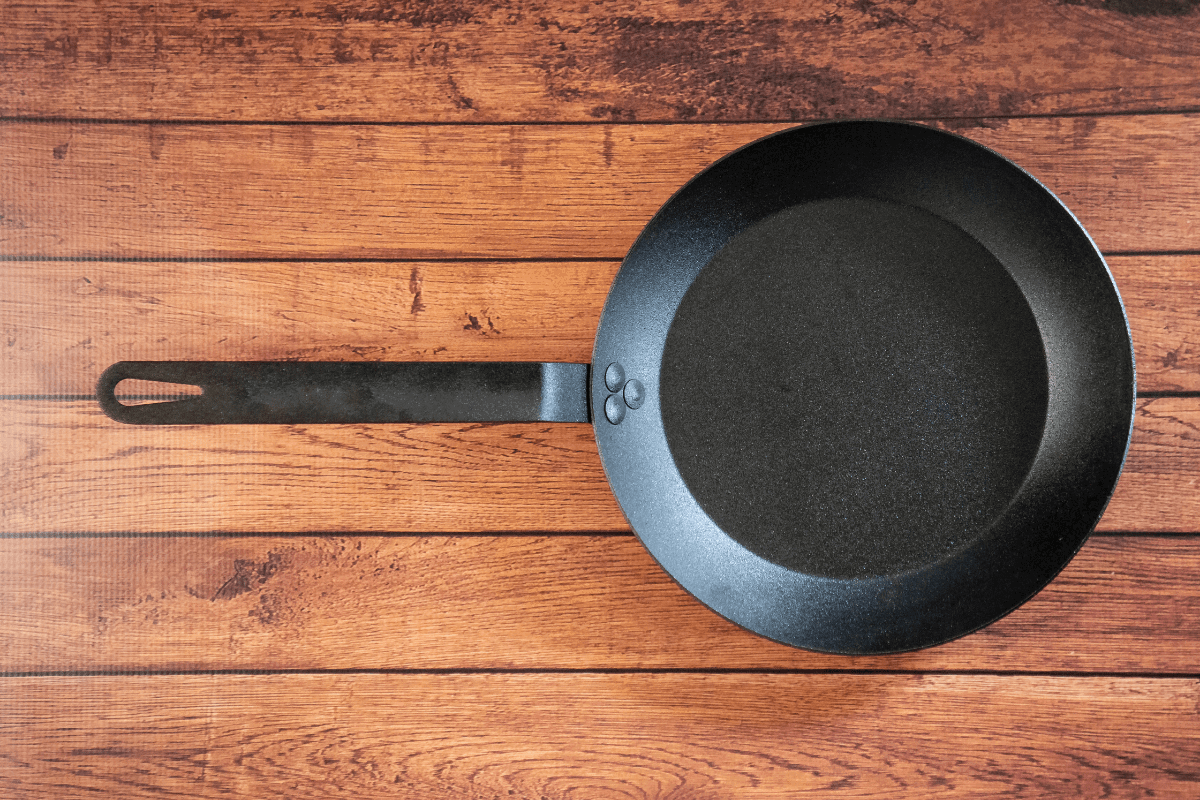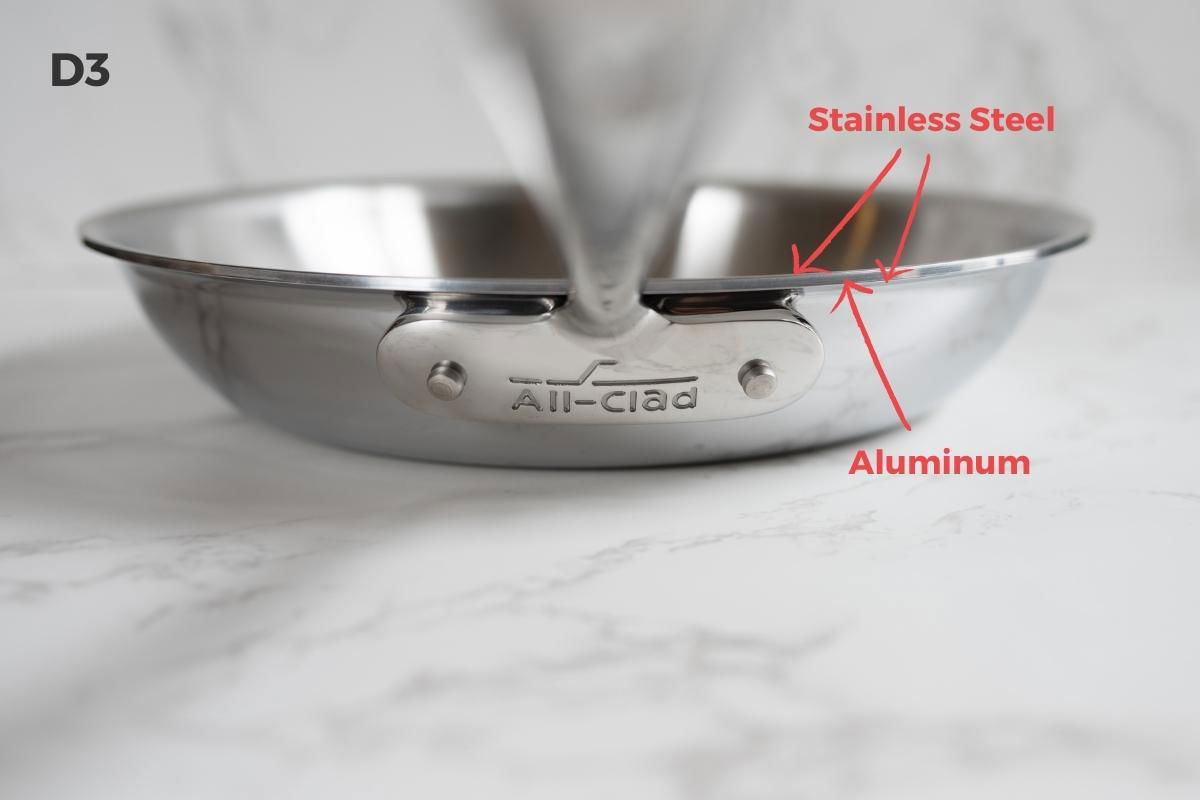Apple cider vinegar has a unique, fruity flavor and distinct bite, but what if you don’t have it on hand? Many other kinds of acid can stand in for apple cider vinegar, and this guide will explain when and why to use each.
As a professional cook of over 15 years and a frugal parent who only keeps a few varieties of vinegar in-house at a time, here are my favorite apple cider vinegar substitutes.
In This Article
The 8 Best Apple Cider Vinegar Substitutes
Rice Vinegar

Rice vinegar is sweeter than apple cider vinegar, but it is the alternative I reach for more than any other.
In recipes that call for only a small amount of apple cider vinegar, the difference in flavor will be unnoticeable. And, they have similar acidities so they can be used in most recipes in a 1:1 ratio.
Rice vinegar is a key component of many Asian dishes, so if you’re making a stir fry or marinade, it will fit in quite nicely. It’s a suitable substitute for baking applications as well.
Sherry Vinegar

Sherry vinegar is my go-to substitute for apple cider vinegar in baking and can be used in a 1:1 ratio for most recipes.
It is lightly sweet and just a bit more acidic than apple cider vinegar. Its mild flavor makes it ideal for recipes where the main function is to react with baking soda to leaven baked goods.
You’ll get an excellent rise without changing the final product’s flavor. The modest taste also makes this a solid choice for dressings and sauces.
White Wine Vinegar

If I don’t have sherry vinegar on hand, white wine vinegar is my next best replacement when baking and can be used in a 1:1 ratio for recipes.
White wine vinegar has a fruity flavor but isn’t quite as bold nor does it have the same distinct taste as apple cider vin. However, their acidities are similar and can easily be swapped in dressing recipes.
White wine vinegar’s mild flavor makes it interchangeable with apple cider vinegar in most cases. So long as its potent tartness isn’t integral to the dish’s taste.
Red Wine Vinegar

Red wine vinegar is my go-to substitute for apple cider vinegar in stews, soups, and stock. However, red wine vinegar isn’t quite as fruity as apple cider vinegar, so I prefer to use it in savory dishes.
Red wine vinegar has a light red hue so keep that in mind if color is an important part of your recipe. This isn’t a problem for chilis, stocks, and stews that will become a rich, brown, or dark red color.

Pro-tip: Red wine vinegar’s acidity and rich flavor make it a great option for deglazing pans, especially when dealing with beef!
Balsamic Vinegar

Balsamic vinegar is sweeter than apple cider vinegar but is a great alternative when you’re seeking fruity undertones.
With this option, it’s important to mind the deep, rich, and opaque color. If the color of balsamic vinegar would harm the aesthetics of your dish, use a different alternative.
For sauces and marinades, balsamic vinegar can be used as a 1:1 substitute for most recipes.
Malt Vinegar

Malt vinegar is an excellent alternative to apple cider vinegar for savory dishes. It can be used in a 1:1 ratio as long as the fruitiness of apple cider vinegar isn’t an important factor in the dish.
Malt vinegar is an especially great substitute in barbecue sauce recipes. It might even provide a flavor profile that you like even more. Malt vinegar is a staple pairing in fish recipes as well.
Because malt vinegar is quite savory, I wouldn’t use it in dressings that call for large amounts of apple cider vinegar. Their flavor profiles are too contrasting, and you’d end up completely changing the recipe’s taste.
White Vinegar + Apple Juice

White and distilled white vinegar are much more potent, harsh, and acidic than apple cider vinegar. Therefore, it is not appropriate to use a 1:1 ratio substitute for apple cider vinegar because of its higher acidity and stark flavor.
If it’s the only vinegar you have on hand, you can dilute it or use smaller amounts in a recipe. But as a strict substitute, I would only use ⅓ to ½ the amount of apple cider vinegar that the recipe calls for.
To replicate the flavor profile and acidity of apple cider vinegar, mix a solution of one part white vinegar with one part apple juice. This will dilute the harshness of white vinegar and provide the flavor and aroma of apples.
This combination is an awesome substitute in pulled pork recipes that call for apple cider vinegar.

Pro-tip: If you’re using apple cider vinegar as part of a cleaning solution, white vinegar is a worthy alternative.
Lime Juice And Lemon Juice

Consider using lime or lemon juice as a substitute in dressings, sauces, and chilis that need acidity.
The citrus flavors and aroma can add a light touch that apple cider vinegar doesn’t have. But the tartness of these citruses can be quite potent, so make sure to taste your dish frequently.
Overall, lemon and lime juice are excellent alternatives when you don’t have any vinegar. And you can use them both in a 1:1 ratio as a replacement.
Other types of vinegar will generally be a closer match to apple cider vinegar. But, lime and lemon juice’s acidity level and bright flavor make them worthy alternatives.
Frequently Asked Questions
What does apple cider vinegar do in baking?
Apple cider vinegar is a liquid acid that activates baking soda to leaven baked goods.
Can you use regular vinegar instead of apple cider vinegar?
White vinegar is harsher and more acidic than apple cider vinegar. Substitute white vinegar for apple cider vinegar by diluting it with water or apple juice.







